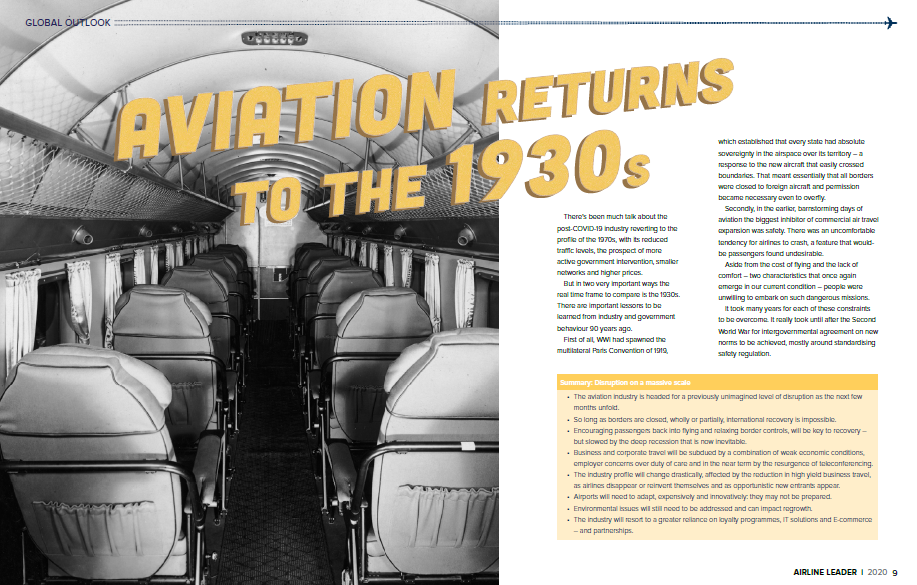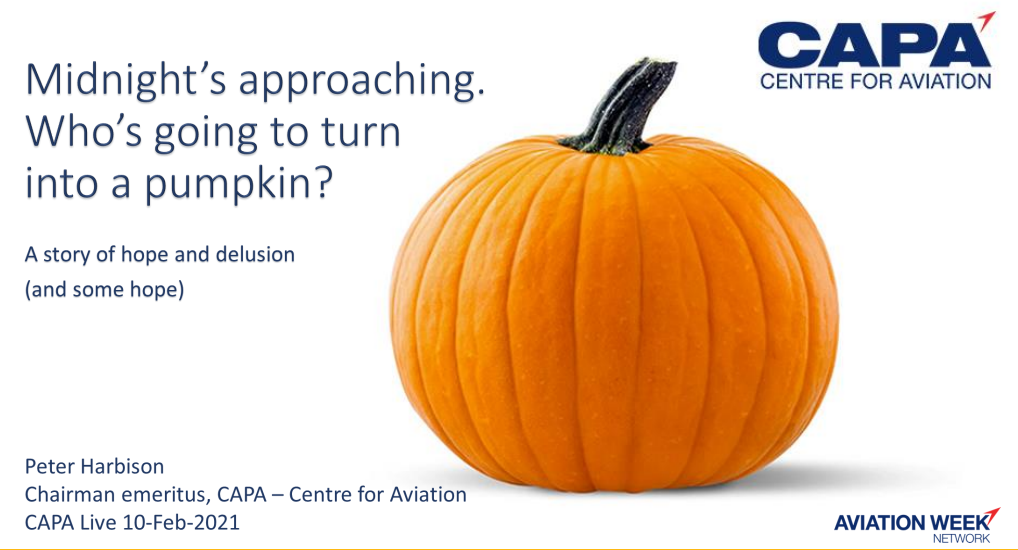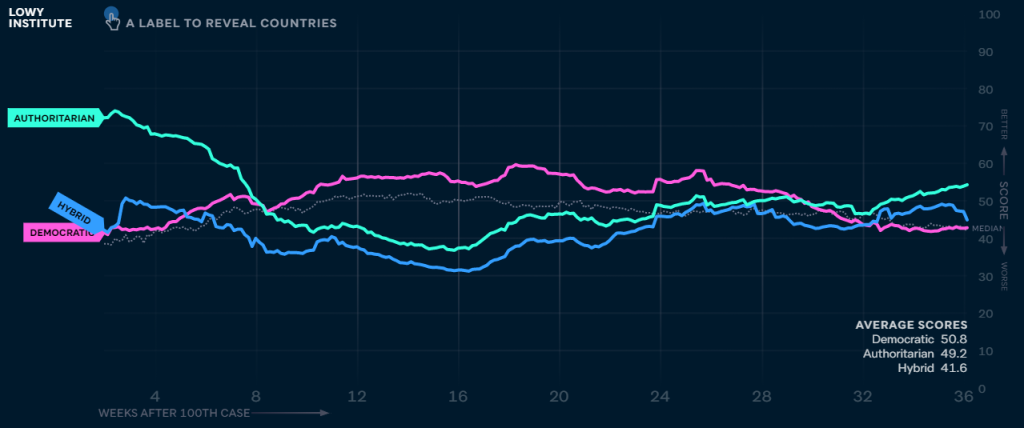There has been much talk about aviation losing 30 to 40 years of development in terms of passenger traffic, like a trip back to the 1970s, with its reduced traffic levels, the prospect of more active government intervention, smaller networks and higher prices.
But, CAPA - Centre for Aviation founder and chairman emeritus, Peter Harbison warned in Sep-2020 (see 'What's the outlook for aviation and travel? 'Disruption on a massive scale') that the ongoing public health crisis has sent us even further back to the 1930s when you consider international air travel and closed borders and a heightened risk of injury. "There are important lessons to be learned from industry and government behaviour 90 years ago," said Mr Harbison in his editorial in the Airline Leader magazine.

WWI had spawned the multilateral Paris Convention of 1919, which established that every state had absolute sovereignty in the airspace over its territory - a response to the new aircraft that easily crossed boundaries. "That meant essentially that all borders were closed to foreign aircraft and permission became necessary even to overfly," said Mr Harbison.
Additionally, in the early, barnstorming days of aviation the biggest inhibitor of commercial air travel expansion was safety. "There was an uncomfortable tendency for airlines to crash, a feature that would be passengers found undesirable," explained Mr Harbison.
In last week's Feb-2021 edition of CAPA Live - a monthly virtual summit, offering insights, information, data and live interviews with airline CEOs and industry executives across a next-gen virtual event platform - Mr Harbison reiterated the travel and aviation industries that emerge from this pandemic will look vastly different than it did before the COVID-19 outbreak.

Capacity will not stabilise for months, and oil prices could surge as broader economic demand rebounds, is one potential prognosis. But more of a guarantee is that the loss of business travel and the added complexity of re-establishing medium and long haul international travel will continue to undermine the full service airline business model.
"Cash flow is now critical, but we're fast approaching the tipping point. Cash burn cannot continue indefinitely, so airlines will need to become pro-active, rather than just 'burn the furniture' to keep warm", warned Mr Harbison.
He also cautioned that the light at the end of the tunnel that new vaccines offer could be the train careering along the tracks in the opposite direction.
"We're almost halfway through 1Q2021 and the situation remains dire," said Mr Harbison. "This may be a little controversial to say but cash burn will actually increase when short-haul travellers return. It's quite simple really: there will be too many seats. In a competitive market there won't be an orderly line up to carry passengers and market share will become a key recovery strategy. That is, airlines will have to pile back in to retain, or establish market share. Airlines will compete on capacity and therefore depress prices. Capacity won't stabilise for months."
But it is not just aviation that has headed back to the 1930s and Great Britain's military chief General Sir Nick Carter warned last week that COVID-19 could cause a rise in global nationalism. In an interview with The Telegraph he warned that the resultant economic crises and 'nationalist barriers' will create 'security challenges' across the world.
Far beyond cooperating to develop a global solution to the current travel crisis, the chief of the defence staff, the UK's most senior military commander, said countries need to cooperate to tackle the virus and its ensuing economic and social problems to fend off potential conflict.
He told the newspaper: "What you generally find with a crisis like this, which becomes an economic crisis, is that it then undermines the stability and security situation as well. What often follows a very significant economic event is a security challenge."
"If you look at the 1930s, that started with a significant economic crash - and that acted as a very destabilising feature. There are moments in history when significant economic challenges have led to security challenges because they act as a destabiliser," he added.
In history, the Great Depression of the 1930s and collapse in international trade is widely accepted to have helped allow Adolf Hitler to rise to power in Germany with the promise of revitalisation and led to World War 2. Today, we already seeing tensions erupt across the world over vaccine supply, restrictive border controls and blame for mutant strains of the virus and their spread.
The recent World Health Organization (WHO) report into the origin of the pandemic has not reassured the world on China's role in the crisis and there is growing resentment against the country as questions surrounding allegations of a cover-up over the origins of the virus remain unanswered.
Vaccine deployment has already became a political issue in Europe. There is bitterness across the European continent where German media has produced what has been described as 'erroneous' reports on the efficacy of one of the foreign vaccines in the older population. The European Union even temporarily invoked Article 16 of the Brexit protocol in an effort to seize jabs destined for the United Kingdom.
The military chief also stated in the interview that the different approaches taken by countries could lead to increased tensions, while a hangover of increased surveillance and curbs on civil liberties could cause future challenges in many countries.
He also noted that totalitarian regimes have fared better in the pandemic and that this could pose questions about how citizens want to be governed. However, recent research from The Lowy Institute, an independent, nonpartisan international policy think tank located in Sydney, Australia, maybe dispels this danger.
The Lowy Institute's study measured key indicators including confirmed cases, deaths, cases per million people, deaths per million people and cases a proportion of tests, ranking the comparison of the average performance over time of countries in managing the COVID-19 pandemic in the 36 weeks following their hundredth confirmed case of the virus.
While the tools to contain the spread of COVID-19 - stay-at-home orders, lockdowns, and border closures - have been common to most countries, how governments convinced or compelled their citizens to adhere to these measures often reflected the nature of their political systems.
But it found that despite initial differences, the performance of all regime types in managing the coronavirus converged over time. "On average, countries with authoritarian models had no prolonged advantage in suppressing the virus," its research shows.

LEARN MORE INSIGHTS FROM THE RESEARCH: New Zealand and Vietnam ranked best for their coronavirus response, but Brazil, Mexico and Colombia found to fall short in their reaction